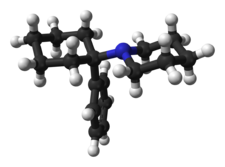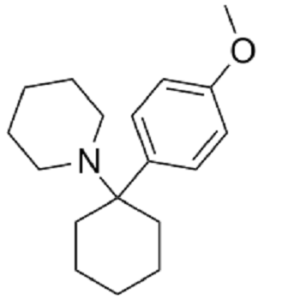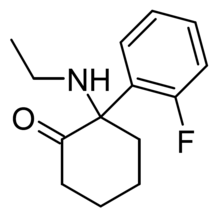PCP (Phencyclidine) is a synthetic dissociative compound that was originally developed in the 1950s as an anesthetic. It belongs to the arylcyclohexylamine class and acts as an NMDA receptor antagonist, meaning it inhibits the action of NMDA receptors in the brain. This interaction disrupts neural communication, leading to the characteristic dissociative effects of PCP.
Although it was initially used in medical applications, its unpredictable side effects, such as hallucinations, agitation, and dissociation, led to its withdrawal from clinical use. PCP is now classified as a Schedule II controlled substance in the United States and is illegal in most countries due to its potential for abuse and adverse effects.
Key Characteristics of PCP:
- Dissociative Properties: PCP causes feelings of detachment from reality, distorted perceptions, and altered states of consciousness.
- NMDA Receptor Antagonist: It blocks NMDA receptors, disrupting the normal activity of glutamate, a neurotransmitter essential for memory, learning, and perception.
- Chemical Structure: PCP has a cyclohexane ring bound to a piperidine group and a phenyl group, making it structurally versatile within the arylcyclohexylamine family.
Effects of PCP:
- Low to Moderate Doses: Euphoria, numbness, distorted sensory perceptions, and mild dissociation.
- High Doses: Intense hallucinations, confusion, paranoia, aggression, and potential psychosis.
- Adverse Effects: Prolonged use or high doses can lead to severe cognitive impairments, cardiovascular issues, and mental health disorders.
Research and History:
PCP was first synthesized in 1926 and gained attention in the 1950s as a potential anesthetic under the trade name Sernyl. However, due to severe side effects, it was discontinued for human use and later repurposed for veterinary applications. Its recreational use began in the 1960s, and it remains a subject of interest in toxicology and pharmacological research.
Important Information:
PCP is considered dangerous due to its high potential for abuse, severe psychological effects, and risks of overdose. It is not intended for medical or recreational use and is strictly regulated under international drug laws.





Leo (verified owner) –
Very well worth the money.
William (verified owner) –
Very fast delivery.
Samuel (verified owner) –
Good quality Arylcyclohexylamine.
Camden (verified owner) –
Very well worth the money.